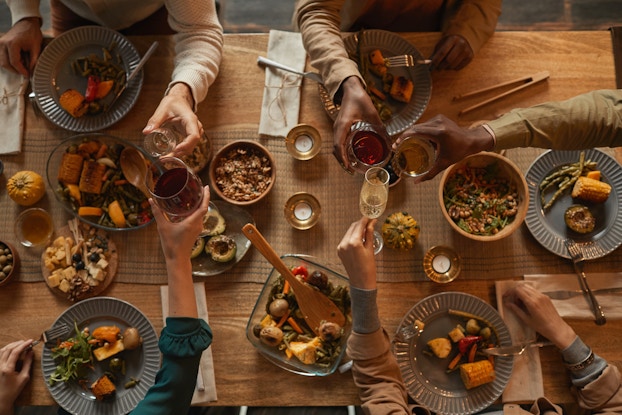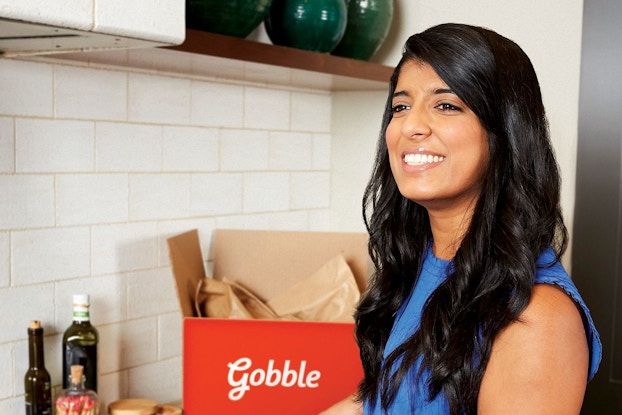
Why it matters:
- Both restaurants and consumers are seeking more efficient and economical ways to tackle food delivery, while many consumers are also ordering personalized meal kits to cook at home.
- Following the sharp decline in restaurant dining during the pandemic, the ranks of artisan food entrepreneurs seeking to sell their products online have swelled.
- Against that backdrop, startups Club Feast, Castiron and Gobble are putting their distinct spin on these food trends to grow business.
Among the industries most severely impacted by the pandemic have been those affiliated with the production and distribution of food, especially the restaurant industry. The National Restaurant Association predicts that despite pent-up demand, the industry will not return to pre-pandemic levels in 2022.
The food economy has been fundamentally reshaped, with more consumers opting for home delivery, many former restaurant workers building their own artisanal food businesses and more families cooking at home. These are precisely the lasting trends that Club Feast, Castiron and Gobble are leveraging as they seek to grow their businesses, CEOs of the food startups told CO—.

Club Feast: Tackling the high demand — and high cost — of restaurant delivery with bargain-priced food
The pandemic accelerated demand for restaurant delivery, with 54% of consumers saying that ordering takeout or delivery is essential to the way they live, according to The National Restaurant Association's 2022 State of the Industry report.

Interested in a small business membership?
Find out how the U.S. Chamber of Commerce can help your company grow and thrive in today's rapidly-evolving business environment. Connect with our team to learn how a small business membership can benefit your bottom line and help you achieve your goals.
However, the costs of delivering restaurant meals presents challenges for restaurants, which often get hit with high fees from third-party delivery services and must scramble to fill orders during peak times. Club Feast is seeking to solve those challenges with a spin on the delivery model in which consumers order their meals well in advance in exchange for lower base prices. This also has the added benefit of reducing costs, driving sales and smoothing operations for restaurants, said Ghazi Atallah, one of the co-founders of Club Feast.
Knowing what meals are going to be delivered ahead of time allows restaurants to prep them during off hours so that staff don’t get swamped with delivery orders during peak times, he said.
Club Feast contracts with independent delivery drivers in the same way that delivery services such as DoorDash, Grubhub and Caviar do. Unlike those third-party services, however, Club Feast’s drivers benefit from the predictability of its orders and the fact that they can make more money with more deliveries per hour, thanks to routes that are optimized through the site’s algorithms, according to Atallah.
The company works with more than 650 restaurants in the San Francisco Bay Area and New York City, and has had a strong retention rate among its restaurant partners, Atallah said. Restaurant partners include Just Salad, The Melt and others.
The company touts prices that can save customers 40% off the exact same meals from other delivery services. Club Feast seeks to keep prices low by partnering with restaurants to create a carefully curated menu of dishes that restaurants can prepare economically in larger quantities, and through the efficiencies of its delivery model.
Customers must order by midnight for the next day’s lunch, and by 2:30 p.m. for that day’s dinner, which gives restaurants time for mass production of the meals.
“What this does for the restaurant is give them certainty,” said Atallah. “So, they can begin cutting and slicing the salads, or preparing the rice, long before our delivery drivers get there.”
Club Feast has been promoting its services using digital ads and other means, touting itself not only as a lower-priced alternative but also a more sustainable one, due to the efficiency of its driver routes. It also has seen strong growth through word of mouth, Atallah said, noting that consumers readily adjust to the fact that they must order in advance.
The company, which has raised $13.75 million from investors, eventually plans to expand to other cities, but for now continues to grow within its current areas, he said. It recently expanded from Manhattan to Brooklyn within New York City, for example.
[Read: 5 Key Consumer Trends that Spell Opportunity for Businesses in 2022]

Castiron: Fueling growth by helping ‘kitchen-based’ creators up their e-commerce gain
Longtime tech veteran Mark Josephson has created a new, mission-driven company that focused on helping artisanal food startups elevate their e-commerce capabilities.
As the CEO of Castiron, which he co-founded in 2020 with venture fund High Alpha, Josephson is seeking to work with “independent, kitchen-based creators” by providing resources and community to help them sell more product.
“We are really passionate about helping entrepreneurs become successful business owners,” he said.
The leaders of these business startups, he said, are often “entrepreneurs by necessity,” who have in many cases lost their jobs during the pandemic and have turned instead to their passion for making artisanal food products, from sourdough bread to hot sauce to wedding cakes.
“These are people who are underrepresented, underresourced, underappreciated, underconnected, underfunded and need to start a business,” said Josephson. “They need to be entrepreneurial to earn a living wage and put food on the table.”
We are really passionate about helping entrepreneurs become successful business owners. These are people who are underrepresented, underresourced, underappreciated, underconnected, underfunded and need to start a business. They need to be entrepreneurial to earn a living wage and put food on the table.Mark Josephson, co-founder and CEO, Castiron
Castiron differentiates itself from large e-commerce solutions providers such as Shopify through its high degree of specialization in the food industry, he said. Rather than simply offering online food templates and themes, the Castiron platform offers a free, streamlined and customizable website builder; built-in food-specific product information such as ingredients and allergen disclosures; order and inventory management tools; the ability to manage multiple delivery and fulfillment options including pickup, delivery and shipping; access to customer information; and community support to connect with fellow artisans.
Working with Castiron allows these entrepreneurs to spend less time on administrative and technical issues and more time focusing on their true passions in the kitchen.
Josephson said he sees global potential for the company, which recently raised $6 million in seed funding from Bowery Capital, Foundry Group and High Alpha.
“We certainly have global ambitions,” he said. “We think more and more people are going to be building independent entrepreneurial businesses and we can help them grow through all stages and all channels.”
[Read: Tech Powers ‘Food as Medicine’ Trend Amid Consumer Quest for Holistic Nutrition]

Gobble leans into meal kits for a post-pandemic, work-from-home era
Eating behaviors transformed significantly during the pandemic, as consumers increasingly cooked at home and sought more convenient ways to put meals on the table for their families.
Meal kits have been one of the beneficiaries of this trend. According a Statista report, meal kit revenues wil top $13 billion globally this year and hit $20 billion by 2026.
Gobble, a meal subscription service that seeks to offer fully prepped meals that can be put on the table within 15 minutes, has kept pace with demand by adding innovative new offerings that enable consumers to customize their meals. Its sales shot up during the pandemic, said Ooshma Garg, founder and CEO of the company.
“The increase in order volume was so dramatic that Gobble urgently developed new software and processes to handle multi-box orders,” she said. “Additionally, Gobble developed food product innovations for the new consumer normal of remote work and flexible work.”
In January of last year, Gobble launched sheet-pan meal kits, which incorporate prepared ingredients that can be baked in the oven for 15 minutes, seeking to make dinner prep a snap. Then, a month later, it rolled out a “Personalize It!” feature, which allows subscribers more flexibility to customize their meals with their preferred protein, for example, or to double up on their proteins.
In addition, Gobble expanded its product selection to include more a la carte proteins, sauces, salads and dishes, which provides the opportunity for subscribers to mix and match dinners with sides, expanding the ability for personalization.
Gobble’s research found that 78.5% of its subscribers reported that the pandemic affected how they shopped for and prepared food. Many consumers adopted new home-cooking routines and patronized restaurants less frequently.
Consumers also tended to eat more meals at home throughout the day. Gobble said it has seen a 200% increase in the basket size for its non-dinner menu items.
In addition to the increase in demand that Gobble saw during the pandemic, the last two years also created more opportunities for homebound families to prepare meals together, which Garg said puts Gobble in a good position for future success.
“Gobble makes cooking so easy that often parents cook with their children,” she said. “From the ease of cooking to the food facts on the recipe card and even the family-style sharing at the dinner table, Gobble offers households a variety of outlets to connect.”
CO— aims to bring you inspiration from leading respected experts. However, before making any business decision, you should consult a professional who can advise you based on your individual situation.
Follow us on Instagram for more expert tips & business owners’ stories.
CO—is committed to helping you start, run and grow your small business. Learn more about the benefits of small business membership in the U.S. Chamber of Commerce, here.







